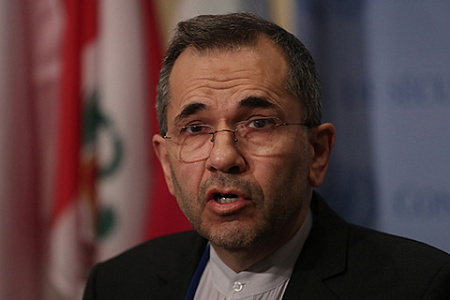
A delegation from the International Atomic Energy Agency (IAEA) arrived in Iran on August 11, marking the first such visit since a calamitous 12-day war in which US and Israeli forces targeted the Islamic Republic’s key nuclear infrastructure. In the wake of the conflict, Tehran significantly curtailed cooperation with international inspectors, but now signals a willingness to forge a new framework for cooperation, a move that could hypothetically pave the way for renewed negotiations with the United States. However, Iran remains adamant that it will not halt its uranium enrichment activities.
Tehran’s engagement with the IAEA is clouded by deep mistrust. Iranian officials publicly blame the agency’s previous detailed reports on their nuclear program for providing the formal pretext for the devastating airstrikes on the Fordo, Isfahan, and Natanz facilities. Iran’s Foreign Ministry decried the “unique situation,” noting that peaceful facilities under constant international surveillance became military targets, and criticized the agency for failing to condemn the attacks as, in their view, it should have.
While the technical discussions with the IAEA could be a stepping stone toward broader diplomacy, Tehran is downplaying the prospect of imminent direct talks with Washington. An Iranian Foreign Ministry spokesman confirmed that messages continue to be exchanged through intermediaries, such as the US interests section at the Swiss embassy, and stated that no decision has been made to resume a full-fledged dialogue. This cautious approach is underscored by Iran’s non-negotiable red line: the continuation of uranium enrichment.
An Iranian deputy foreign minister, Majid Takht-Ravanchi, clarified that while Tehran could show flexibility on the “capacities and limits” of enrichment, it would “under no circumstances agree to stop enrichment.” He stipulated that any future negotiations with Washington would require guarantees against further attacks and could involve discussions on US payment of war reparations. “If the U.S. insists on zero enrichment, there will be no deal,” he stated unequivocally.
From Israel’s perspective, the military operation was a necessary intervention. Prime Minister Benjamin Netanyahu compared it to “removing a cancerous tumor,” acknowledging that while “metastases” could appear and the threat could return, the action was vital to prevent Iran from acquiring nuclear weapons. He asserted that the strikes inflicted “significant damage,” setting Iran’s nuclear ambitions back by years and thwarting a program that was mere months away from developing a nuclear bomb.
Despite the damage, independent analysis suggests Iran retains formidable capabilities. According to the Institute for National Security Studies (INSS) in Tel Aviv, Tehran still possesses dozens of kilograms of uranium enriched to 60%—a level close to weapons-grade—and may have preserved several hundred advanced centrifuges. The INSS also warns of the troubling possibility that Iran operates secret nuclear sites unknown to either the US or Israel.
Reflecting the pervasive fear of renewed conflict, Iran has reportedly tightened security protocols for its top nuclear scientists following alleged Israeli assassination operations in June. Sources indicate that more than 15 key researchers who survived are no longer living in their own homes or lecturing at universities. They and their families have been relocated to secure apartments, a stark illustration of the deep-seated apprehension in Tehran that the war could reignite with even greater force.
